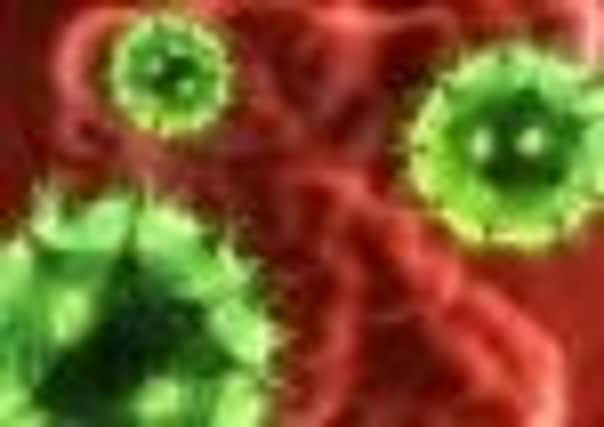Sickbug virus causes seasonalmisery for some


Figures recorded by the Health Protection Agency show a 72 percent increase in the virus from the same period last year.
And there could be worse to come with medical experts saying that the virus usually peaks in late January to early February.
Advertisement
Hide AdAdvertisement
Hide AdThe bug, which has been described as “very unpleasant” by the NHS, can cause severe vomitting, diarrhoea and stomach cramps starts with little warning and can can last for several days.
The Health Protection Agency figures show there have been 3,877 laboratory-confirmed cases so far this autumn and winter - 72 per cent higher than at the same time last season.
For every confirmed case, the HPA estimates another 288 go unreported, as most people do not bother to visit their doctor when they contract the virus.
John Harris, a norovirus expert at the HPA, said: “As we have seen in previous years there has been a dip in the number of confirmed laboratory reports owing to the Christmas and New Year period.
Advertisement
Hide AdAdvertisement
Hide Ad“However, in line with other norovirus seasons we will expect to see an increase in the number of laboratory reports in the next few weeks.”
He continued: “Norovirus is very contagious, and anyone who has had it knows it is very unpleasant.
“If you think you may have the illness then it is important to maintain good hand hygiene to help prevent it spreading.
“We also advise that people stay away from hospitals, schools and care homes as these environments are particularly prone to outbreaks.”
Advertisement
Hide AdAdvertisement
Hide AdThe total number of norovirus outbreaks in hospitals this season has reached 590, of which 517 led to ward closures., with the Conquest Hospital among those affected.
A Department of Health spokesman said: “Flu and norovirus are typical at this time of year - that’s why we are running the ‘Catch It. Bin It. Kill It’ campaign to remind people that one of the best ways to stop the spread of winter bugs is to Catch It, Bin It and Kill It when you cough or sneeze and wash your hands regularly.
If you have norovirus drink plenty of water to avoid dehydration and take paracetamol for any fever or aches and pains.
NHS advice is to stay at home and don’t go to the doctor, because norovirus is contagious and there is nothing the doctor can do while you have it. However, contact your GP to seek advice if your symptoms last longer than a few days or if you already have a serious illness.